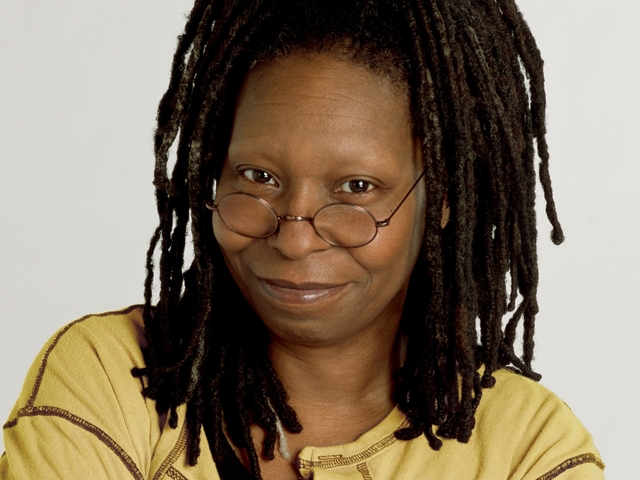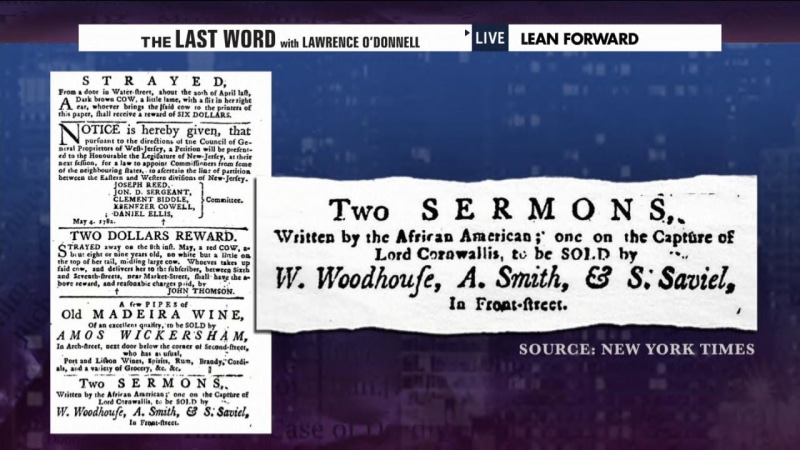
By
(MSNBC) Actress Whoopi Goldberg continued the apparent tradition of polarizing racial rhetoric on “The View” this Tuesday, proclaiming she is “American” not “African-American,” while criticizing Donald Trump’s 2016 campaign for the presidency.
“This is my country,” she said. “My mother, my grandmother, my great-grand folks, we busted ass to be here. I’m sorry. I’m an American. I’m not an African-American, I’m not a chick American, I’m an American!” Her comments were backed up by her co-host, actress Raven-Symoné, who sparked a similar controversy in the fall of 2014 when she made a virtually identical distinction during an interview with Oprah Winfrey,
Goldberg’s rhetoric has provoked an inevitable backlash — and perhaps that was the intent — but it has also revived an increasingly common debate within the black community about how to identify themselves and why. In an age when people like Rachel Dolezal appear to be making the case that race can be fluid and the president of the United States, who identifies as African-American, routinely has hisracial authenticity called into question, Goldberg’s rant has only added more fuel to a fire that has been simmering for some time.
Racial commentary on “The View” has become increasingly polarizing since Symoné joined the cast in June 2015. She has been widely criticized for saying she would not hire someone with a stereotypical black name (she facetiously offered “Watermelondrea” as an example) and for appearing to cast blame on a black South Carolina high school student who was seen dragged across a classroom floor by an officer.
Apparently not to be outdone, Goldberg has shown a penchant for defending celebrities accused of rape and racial epithets — although in the case of Bill Cosby, who has been accused of dozens of sexual assaults, the “Sister Act” star has walked back her initial skepticism. Anger over Symoné’s statements has inspired a petition, drawing the signatures of thousands, calling for her removal from the show.
“African-Americans and black people around the diaspora need a voice representative of their views and not a voice representative of what white people want us to say,” read the petition. “We need strong black role models in prominent positions on television and Raven-Symoné cannot provide that.” ABC, which airs “The View,” has stood by the former Disney Channel star. ”We love Raven,” a spokesperson told E! last October. “She is confident, genuine and opinionated, all qualities that make her a great addition to the panel.”
BET entertainment editor Clay Cane told MSNBC on Wednesday that Symoné is effectively “keeping ‘The View’ alive,” by starting conversations that draw in younger audiences about race. And although he finds her views “problematic,” Cane also believes they aren’t calculated. He argues that African-American celebrities are often expected to “represent their blackness” in the positions they take in public, andSymoné has broken the mold to some degree in that regard, for better or worse, by “speaking from her heart.” However, Cane points out though that, as someone who has been famous since she was a toddler (she was a breakout star on “The Cosby Show” in the early ’90s), there are certain socioeconomic experiences Symoné simply cannot relate to.
The same could be said for Goldberg. “I think she’s been rich and famous for a really long time and that puts you in a bubble,” said Cane, and while he conceded that “talking about the social construction of race is not always an easy thing to do,” he disagreed with the crux of her argument. “We’re not all Americans, if we were all Americans we would not have situations like Ferguson or Baltimore,” he added.
The term “African-American” began to be widely embraced during the late 1980s, which saw a resurgence of Afrocentrism in the black American community. Some have credited Rev. Jesse Jackson with creating the term, although a Yale researcher recently discovered that it was used as far back 234 years ago in 1782. While “black” is still commonly used — and in certain circles variations of the N-word have been popularized — “African-American” remains the predominant, politically correct reference for most of mainstream America.
”This is deeper than just name recognition,” Jackson said in a 1988 press conference where he heralded the label, according to The New York Times. ”Black tells you about skin color and what side of town you live on. African-American evokes discussion of the world.”
But it is precisely the international flavor of the terminology that makes some black people in the U.S. uncomfortable.
“Some black people are ambivalent about being associated with Africa because, to a great extent, we always were ambivalent. Sometimes African-Americans have been downright hostile towards embracing their African heritage. Unfortunately, it makes sense, given the years of conditioning, of being told that ‘African’ or ‘black’ is inferior, dirty, poor, backward, lazy, criminal — pick your term,” freelance journalist and commentator David A. Love told MSNBC on Wednesday. “In any case, being of African descent is perceived as incompatible with being American, although black people have been American for hundreds of years, just not treated like it.”
Cane believes African-Americans are particularly unique in having shifted from terms like “colored” and “Negro” to “black” and “African-American” over several generations. “Identity is evolving so much in this country right now,” he said. “The reason why people don’t want to be called a label is because they don’t want the bias associated them, but I think it’s about seeing identities, knowing they exist and learning from them.” Still, he understands why others shy away from specific terminologies.
“It’s the complexity of our identity,” he said. “It’s constantly changing.”


Be the first to comment